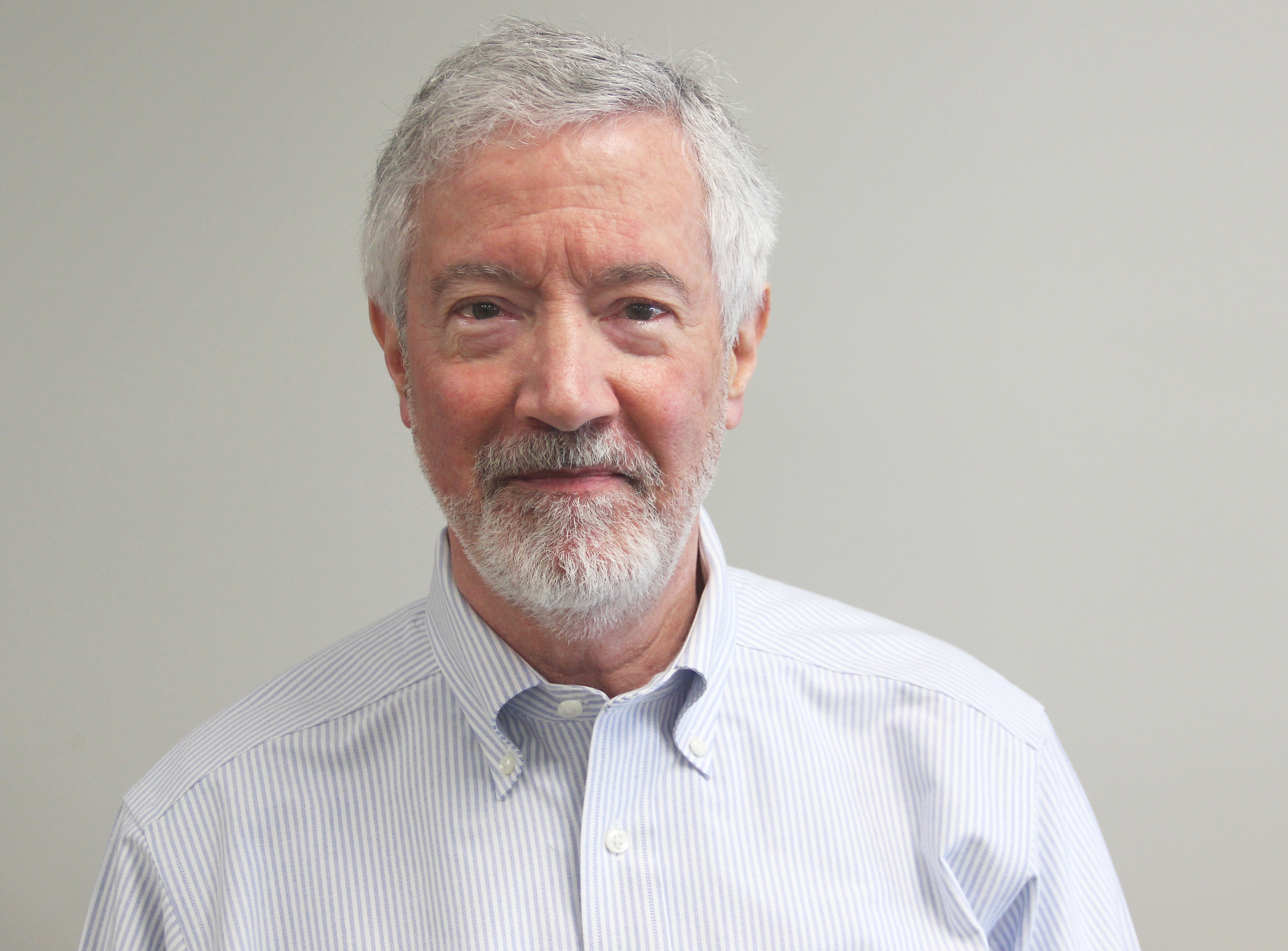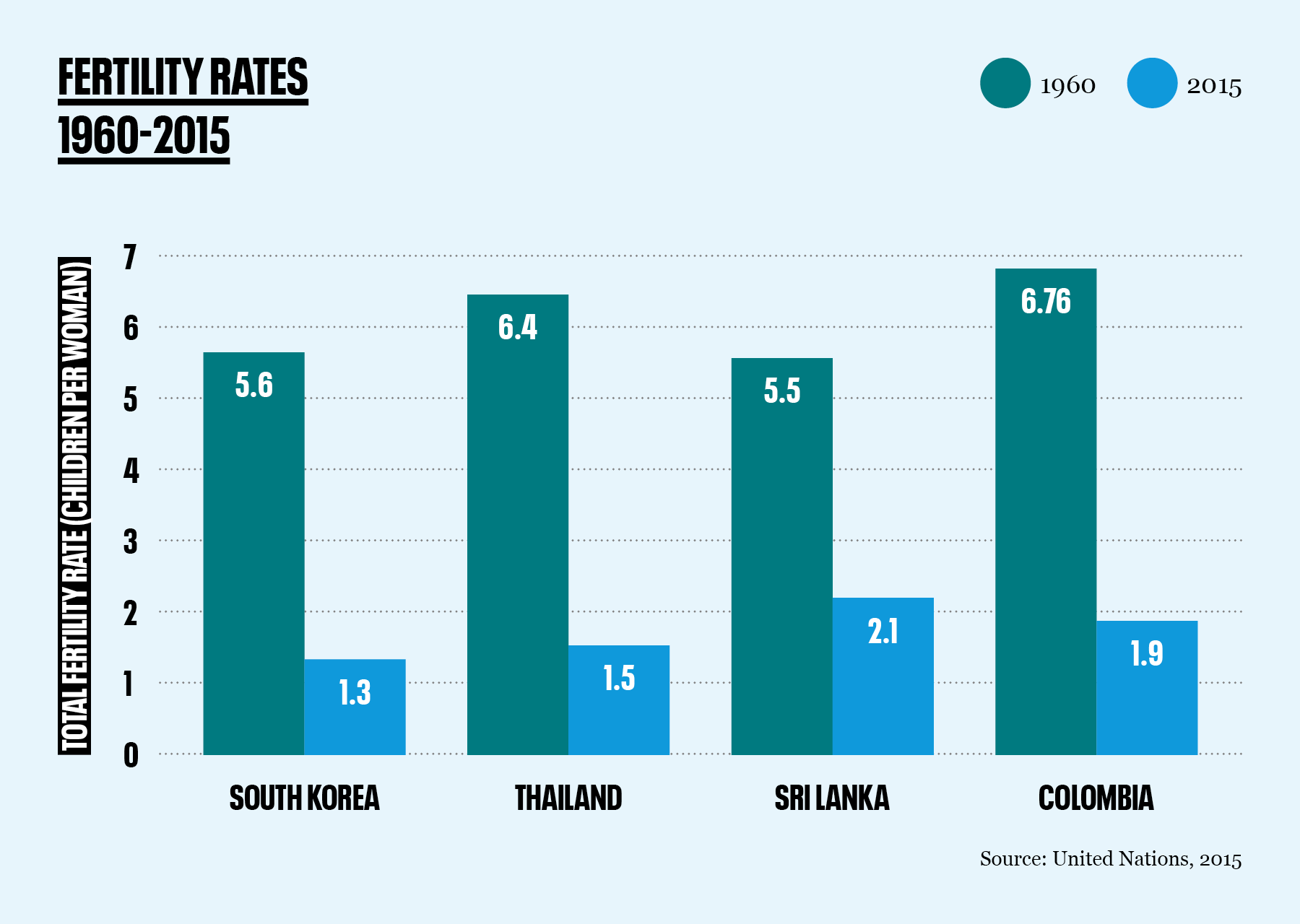
Bill Ryerson: We can bring birth rates down fast
Is it really easier and quicker to reduce fertility rates (the number of children per woman) than greenhous gas emissions, and what role does entertainment media play in achieving a sustainable population? Our Outreach Coordinator Florence Blondel interviews Bill Ryerson, Founder and President of the Population Media Center and Population Matters Expert Advisor.

FB: As someone with vast experience in low- and high-income countries, including my own Uganda, would you say that there is growing interest in population issues?
BR: During the half century I have worked in the population field, I have seen interest rise and fall several times. Currently, it appears to be on the increase, both because of realisation that human population numbers are a factor in climate change and because of the findings by the UN Environment Programme that the greatest threats to biodiversity come from expanding human habitation and human farming – both directly caused by population growth.
FB: In the film 8 Billion Angels, you suggested that it would be much easier and quicker to reduce fertility rates than emissions. Can you explain this? And shouldn’t we do both?
BR: There are numerous examples of countries rapidly lowering their fertility rates through campaigns promoting small family norms and use of family planning. This is true of many Asian countries, Mexico, and Iran. Mexico benefited from five family-planning telenovelas created by Miguel Sabido on the largest network, Televisa, in the 1970s and 80s. Using his strategy, Population Media Center has seen similar decreases in many of the 51 countries where we have worked. For example, the fertility rate in Ethiopia fell by a full child in the two years of our first radio novella there. About half the population were listening to that programme, and declines in fertility were significantly pronounced among listeners.
While addressing population growth will not solve the climate crisis by itself, a significant effort to promote small family size and use of family planning can yield about 25% of what is necessary to avoid catastrophic climate change, as determined by a study by Professor Brian O’Neill of the University of Colorado Boulder.
We also need to lower per capita emissions, especially in wealthy countries. This requires both regulation by governments and motivation of the public. Changing use of energy for transportation, changing diets, and many other steps can help to bring about lower emissions. But there are barriers to rapid reductions in emissions in that many people will continue to drive fossil fuel powered cars that they own and may resist changing to more plant-based diets.

FB: Can you talk briefly about the main barriers to lowering fertility rates that you’ve identified over the years?
BR: The top barriers are continued cultural norms in many countries favouring large family size. This is especially true in West Africa, where desired fertility is higher than actual fertility. For example, in Niger, actual fertility is 7.6 children born to average woman during her reproductive years. Yet, when asked, women say they want almost 10 children, and men want 13. In Nigeria, fertility is 5.7. Men say they want 9, and women want 7. So, these norms are drivers of high fertility.
In addition, many of the 225 million women who do not want a pregnancy and are not using contraception state that their reason for non-use is fear of health effects of contraception, male opposition, religious opposition, or fatalism about fertility.
Changing norms related to the rights and status of women and girls is critical. The need to promote girls’ education in place of child marriage is a human rights imperative, as well as a key element in lowering fertility. It is important to address cultural norms related to large family size and violence against women and girls as well.
Cultural factors explain why communications are so important in changing the trajectory of demographic trends. Also, the need to continue and expand provision of low-cost contraceptive and reproductive health services is vital. But lack of access to contraception is cited as the reason for non-use by less than 1% of non-users in most countries.
FB: PMC’s mission is “To use entertainment-education and mass media to promote social and cultural change by addressing the interconnected issues of the full rights of women and girls, population, and the environment.” Why is the use of media so effective? Can you share a success story?
BR: People do not go home at night to listen to public health messages. They go home to relax and consume entertainment media. Using entertainment serialised dramas can hook an audience because of the cliff hangers that end each episode. Over time, audience members fall in love with key characters designed to be just like them. As these characters sort out conflicting advice from positive and negative characters and make mistakes and realise consequences, the audience learns the results of strategies the characters use to improve their lives. As the key transitional characters gradually evolve into positive role models for use of family planning, small family norms, education of girls, and delayed marriage, they can significantly influence the audience to model their behaviour after the characters they have fallen in love with.
For example, at 11 clinics across four northern Nigerian states, new reproductive health clients were asked what motivated their visit to the clinic. Two-thirds (67%) of them named the PMC radio serial drama that was on the air at the time. Similarly, in Sierra Leone, 50% of new reproductive health clients cited the PMC programme on the air when asked what motivated their visit to the clinic.
As a result of reaching and motivating large numbers of listeners to seek reproductive health services, the cost of even a 208-episode programme, when looked at from the standpoint of cost per behavior change, is very low. In northern Nigeria, the cost per family adopter of the programme mentioned was US$0.30 (0.21 British Pounds).

FB: What about policymakers – do you feel that policies also have a role to play in driving positive behaviour change or is it more the other way around, with shifting social norms leading to positive policy change?
BR: Policy is important, especially policies that provide for universal primary and secondary education of girls as well as boys, policies that outlaw child marriage, female genital mutilation (FGM), and other forms of violence against women and girls, policies that facilitate comprehensive sexuality education, and policies that support access to a full range of family planning and reproductive health services. Policy makers can also use their positions to promote positive behaviors. But, as your question implies, public support is critical to most policy makers, so changing public perceptions and norms directly can lead to more enlightened policies.
FB: What can concerned individuals (like our readers) do to help accelerate the needed social and cultural change?
BR: Discussing these issues with others is one way that new ideas spread through society. Campaigns to reach out to policy makers and funding agencies can also lead to governmental support for initiatives that benefit women and girls – and thus the planet. And of course, readers can and should support NGOs working to bring about changes in social norms. Their work is primarily dependent on support from donors.
FB: Anything else you would like to add?
BR: I greatly appreciate this interview. I would be happy to hear from readers, who can write me at ryerson[at]populationmedia.org.
William N. Ryerson is Founder and President of Population Media Center (PMC), an organisation that strives to improve the health and wellbeing of people around the world through the use of entertainment-education strategies. He also serves as Chair of The Population Institute in Washington, DC. PMC creates long-running serialised dramas on radio and television, in which characters evolve into role models for the audience resulting in positive behavior change. The emphasis of the organisation’s work is to educate people about the benefits of small families, encourage the use of effective family planning methods, elevate women’s status, prevent exploitation of children, promote avoidance of HIV infection, and promote environmentally sustainable behaviors. Mr. Ryerson has a half-century history of working in the field of reproductive health, including three decades of experience adapting the Sabido methodology of social change communications to various cultural settings worldwide.


